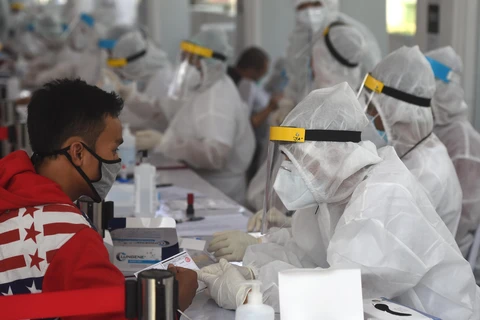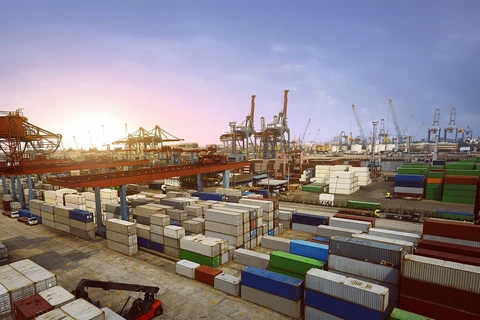 Indonesian Red Cross (PMI) workers spray disinfectant at SMA 68 Jakarta senior high school on March 3.(Photo: thejakartapost.com)
Indonesian Red Cross (PMI) workers spray disinfectant at SMA 68 Jakarta senior high school on March 3.(Photo: thejakartapost.com)
Jakarta (VNA) - Indonesia will allow phased reopening of schools located in COVID-19 low-risk areas, or 'green zones', starting in July.
A joint ministerial decree by the education, religious affairs, home, and health ministers was announced on June 15 to regulate the school reopening during the pandemic.
Around 90 cities and regencies across Indonesia are considered 'green zones'. The number of students in those areas is roughly equivalent to 6 percent of all students in the country. This means the remaining 94 percent still have to continue online learning, said Education and Culture Minister Nadiem Makarim at a press conference.
According to the ministry’s official academic calendar, the beginning of the 2020-2021 school year is slated for July 13.
However, parents would have the final say on whether they would allow their children to go to school or not, Nadiem said.
During the initial stage, the ministry will only allow senior and junior high schools to reopen. Elementary schools will be able to follow suit two months after, while kindergartens four months after.
For the reopening, schools are required to have clean toilets, hand-washing facilities, disinfectant, thermo guns and access to health facilities. They should also provide areas where wearing a face mask is mandatory.
After the reopening, all students have to adhere to physical distancing measures and wear masks. Schools are required to limit the amount of students per classroom to 18, or roughly 50 percent of the previous capacity.
Students, teachers or parents who are sick or have a comorbidity are advised not to go to school. Those who had traveled outside the 'green zone' should also self-quarantine for 14 days before going to school, Nadiem said./.






















